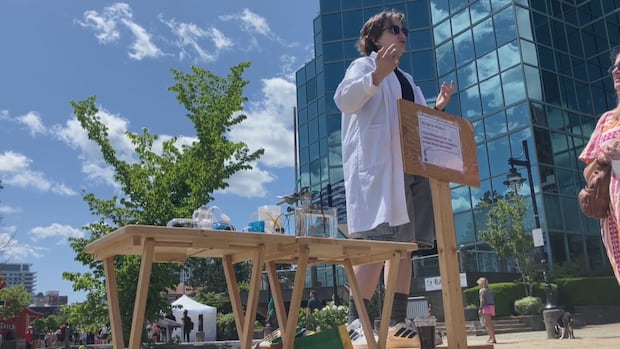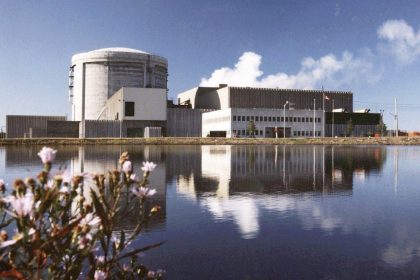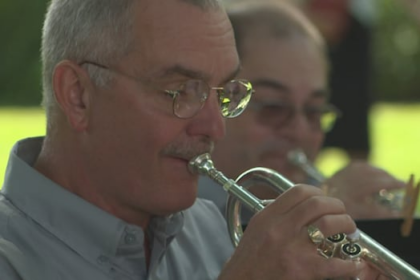Nova Scotia·NewTen scientists took turns standing on wooden soapboxes on the Halifax Waterfront on Saturday in an effort to discuss their work across various areas with members of the public.Event on Halifax Waterfront invited people to ‘enjoy, learn from, heckle, question’ scientific researchJosh Hoffman · CBC News · Posted: Jun 22, 2025 5:00 AM EDT | Last Updated: 31 minutes agoTen research scientists took park in Soapbox Science on the Halifax Waterfront on Saturday. The event was an opportunity for scientists to engage members of the public about their work. (Josh Hoffman/CBC)The COVID-19 pandemic led to a lot of attacks on science.There were protests against public-health mandates, some people harassed health officials and others used social media to share scientific misinformation.But on Saturday, 10 scientists on the Halifax Waterfront put themselves in front of the public — standing on literal soapboxes — to discuss their work.”I think there’s a little bit more skepticism with the public in general about science, so I think it’s making these events even more important,” said Kim Brewer, an associate professor at Dalhousie University’s School of Biomedical Engineering who helped organize the Halifax Soapbox Science event.Kimberly Brewer, an associate professor of enginneer at Dalhousie University and the event organizer, said science shouldn’t be considered ‘scary.’ (Josh Hoffman/CBC)Soapbox Science is an international initiative that started in London, England, in 2011 and has hosted events across Canada since 2017.The events highlight the work of women and non-binary people in science while giving people “the opportunity to enjoy, learn from, heckle, question, probe [and] interact with” scientists, according to the group’s website.The event has been held in Halifax before and returned last year for the first time since the start of the pandemic when science and scientists were constantly being challenged.”It’s not scary,” said Brewer. “It’s not this weird thing that is done by strangers in labs far away.”‘Fun challenge’ to get people to understand scienceSarah Martell was one of the researchers who took part of the event. She spoke about her work in hydrogen generation as a potential clean energy source. Martell, who works in a chemistry lab after recently finishing her PhD at Dalhousie University, said some of her environmental work has been subject to “wild” comments online.”I think that’s what makes science communication and events like this really important,” she said. Sarah Martell, who is queer, said the event is a ‘fantastic’ support for non-binary people in science and a challenge to connect with members of the public. (Josh Hoffman/CBC)Engaging with people in person is a lot easier than trying to get your point across to someone on the Internet, Martell said.She said people who stopped by the event Saturday seemed genuinely interested and asked good questions. As for how to communicate such complex topics to the average person, she said that’s part of the job sometimes. “I think it’s a fun challenge and, I think as a scientist, I sort of feel like it’s my responsibility to take that challenge on.”ABOUT THE AUTHORJosh Hoffman is a reporter for CBC Nova Scotia. Josh worked as a local radio reporter all over Canada before moving to Nova Scotia in 2018.
‘It’s not scary’: Initiative to engage public with science finds new meaning post-COVID











